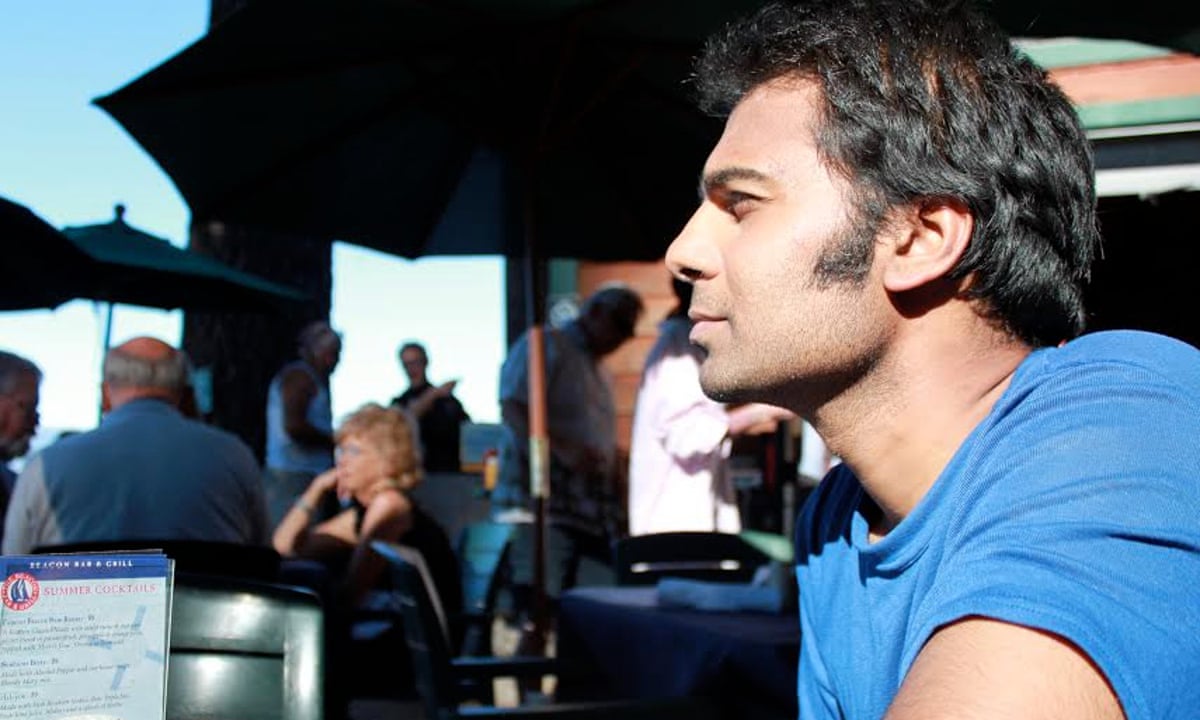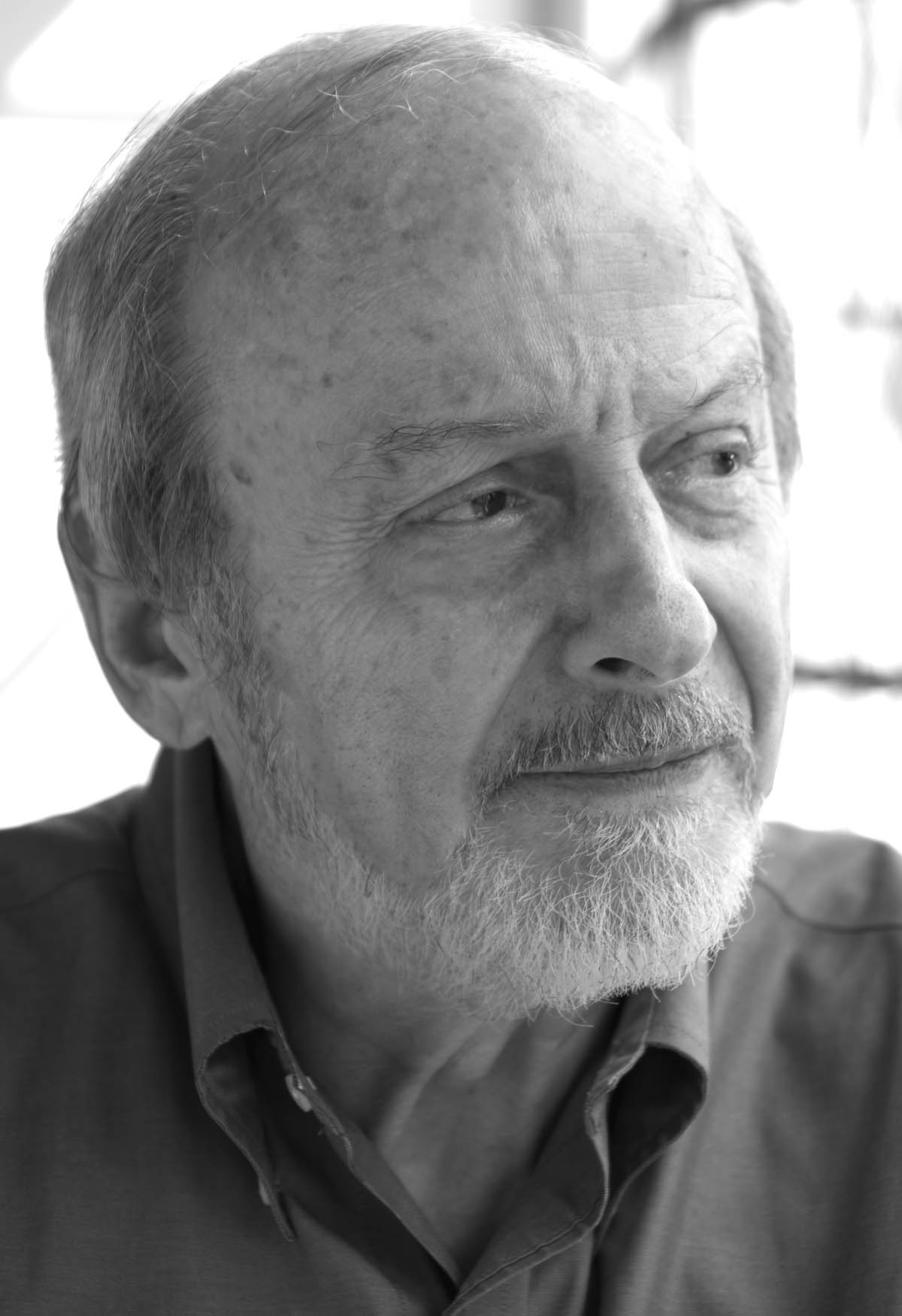Nobel Prize-winning psychologist Daniel Kahneman and his colleagues have shown that what we remember about the pleasurable quality of our past experiences is almost entirely determined by two things: how the experiences felt when they were at their peak (best or worst), and how they felt when they ended. This “peak-end” rule of Kahneman’s is what we use to summarize the experience, and then we rely on that summary later to remind ourselves of how the experience felt.
Who is on President Obama’s Shortlist to Replace Antonin Scalia? | Democracy Now!
Nearly 30 years ago, Antonin Scalia was approved by the Senate in a unanimous vote. Analysts are projecting a much tougher road for the next nominee. We look at four potential nominees: California Attorney General Kamala Harris, D.C. Circuit Judge Sri Srinivasan, Ninth Circuit Judge Paul Watford and Eighth Circuit Judge Jane Kelly.
Source: Who is on President Obama’s Shortlist to Replace Antonin Scalia? | Democracy Now!
A 94-year-old former Nazi guard stands accused of helping to murder 170,000 people — still hope that more war criminals will be brought to justice
ed:This shows there is still hope that many more war criminals, from Africa, Latin America, China, the U.S., will one day be brought to justice and, perhaps people in this world will change their ways and not order others to go out and kill people.
Trials of former Nazi concentration camp guards in Germany have become rare in recent decades: As more and more of the perpetrators have died, prosecutors find it increasingly hard to charge those responsible for the horrendous crimes.
 The current trial of 94-year-old Reinhold Hanning, a former SS guard at Auschwitz, may be one of the last of its kind. Hanning is accused of participating in mass shootings and selecting inmates for the executions. The trial started Thursday.
The current trial of 94-year-old Reinhold Hanning, a former SS guard at Auschwitz, may be one of the last of its kind. Hanning is accused of participating in mass shootings and selecting inmates for the executions. The trial started Thursday.
Johnny Cash’s ‘Ring of Fire’ like may never have heard it before
From the Flip Wilson Show
Tesla to unveil its $35,000 ‘Model 3’ on March 31 | engadget
 Tesla has long promised a $35,000 electric car is on the way, and in today’s earnings release (PDF) it announced that we’ll get to see the Model 3 on March 31st, ahead of it going on sale in “late 2017.” That’s in addition to the currently shipping Model S sedan (shown above) and Model X SUV, and the company recently confirmed it still expects to hit that $35k price target before applying electric vehicle incentives. Also, its battery building gigafactory — key to achieving that mass market price for the Model 3 — is up and running in Nevada, with Powerwall units produced there already in use by customers.
Tesla has long promised a $35,000 electric car is on the way, and in today’s earnings release (PDF) it announced that we’ll get to see the Model 3 on March 31st, ahead of it going on sale in “late 2017.” That’s in addition to the currently shipping Model S sedan (shown above) and Model X SUV, and the company recently confirmed it still expects to hit that $35k price target before applying electric vehicle incentives. Also, its battery building gigafactory — key to achieving that mass market price for the Model 3 — is up and running in Nevada, with Powerwall units produced there already in use by customers.
Bits from today’s Washington Post feed
Donald Trump mocked at German Carnival: “Make fascism great again”
This Indian soldier survived five miraculous days trapped beneath a 25-foot avalanche
Chinese mall becomes ‘prison’ for bears, belugas, wolves
And, from Harper’s Weekly Review, Phoenix City Council members voted to ban prayer at meetings rather than allow a representative of the Satanic Temple to perform the opening invocation. “It leaves a bad taste,” said a lawyer for the Temple, “in the Satanist’s mouth.”
Overseas jobs online now!
A character in a story I’m working on is surprised at the online availability of jobs in Afghanistan ::::
…. you could literally find a job in Afghanistan online, from the Army’s Civil Logistics Augmentation Program, which sounded like a rational way to contribute to society — or the destruction of one — to truck drivers where employment may be located in “potentially dangerous areas, including combat or war zones,” and where threats to your life could be from “dangerous forces or friendly fire,” and, in case they’re not killed, candidates need to “work well with others, customers and all levels of management.” Or you can become a “final evaluation consultant” for a human rights organization that calls themselves a “movement working to further human rights for all and defeat poverty.”
Many of the jobs can be applied for right from a smart phone, the good thing being that with Google’s locator services, paid for only by the ads they sell (sure, okay, I believe that) they know a lot about you before you even submit your application – they know you’re interested before you even apply because they know you’ve been looking, and they know where they will have to fly you in from.”
New York: Radiation Spikes 65,000% at Indian Point Nuclear Plant After Leak | Democracy Now!
 New York Gov. Andrew Cuomo has announced “alarming levels” of radiation after water contaminated with radioactive tritium leaked from the Indian Point nuclear power plant. At one monitoring well, the radiation had spiked 65,000 percent.
New York Gov. Andrew Cuomo has announced “alarming levels” of radiation after water contaminated with radioactive tritium leaked from the Indian Point nuclear power plant. At one monitoring well, the radiation had spiked 65,000 percent.
The plant’s owner, Entergy Corporation, has said the groundwater contamination at the plant does not pose a threat to the public.
[editor’s note] REALLY?!? NO THREAT TO THE PUBLIC. I THINK WE SHOULD GET THE OWNERS OF ENTERGY DOWN THERE TO THE PLANT TO DRINK SOME OF THE WATER AND HANG OUT, MAYBE HAVE A SLEEPOVER FOR A WEEK OR SO AND SEE HOW MANY OF THEM ARE DIAGNOSED AND DIE OF CANCER BEFORE THEY DIE OF NATURAL CAUSES.
Environmentalists have long called for the closure of Indian Point, citing aging infrastructure and a history of operational issues.
BUT LET’S NOT LISTEN TO THEM BECAUSE THEY’RE ENVIRONMENTALISTS! THEY PROBABLY HAVE NO PROOF, SCIENTIFIC OR OTHERWISE, THAT RADIOACTIVE CONTAMINATION IS BAD FOR HUMAN HEALTH OR ANYTHING LIKE THAT.
Source: New York: Radiation Spikes 65,000% at Indian Point Nuclear Plant After Leak | Democracy Now!
‘When Breath Becomes Air’: How to live, by a doctor who died at 37
 This fast-selling memoir by an idealist neurosurgeon facing an early death from cancer gains power and poignancy from its detailed descriptions and reflections on mortality. The power of this book lies in its eloquent insistence that we are all confronting our mortality every day, whether we know it or not. The real question we face, Kalanithi writes, is not how long, but rather how, we will live – and the answer does not appear in any medical textbook. It brings him back, at last, to the books of poetry he left gathering dust when he entered medical school.
This fast-selling memoir by an idealist neurosurgeon facing an early death from cancer gains power and poignancy from its detailed descriptions and reflections on mortality. The power of this book lies in its eloquent insistence that we are all confronting our mortality every day, whether we know it or not. The real question we face, Kalanithi writes, is not how long, but rather how, we will live – and the answer does not appear in any medical textbook. It brings him back, at last, to the books of poetry he left gathering dust when he entered medical school.
Source: When Breath Becomes Air by Paul Kalanithi review – how to live, by a doctor who died aged 37
Goethe quote about taking action
“Whatever you think you can do or believe you can do, begin it. Action has magic, grace and power in it.” ~ Goethe
Hemingway’s Advice on Writing, Ambition, the Art of Revision, and His Reading List of Essential Books for Aspiring Writers
By Maria Popova
 “As a writer you should not judge. You should understand,” Ernest Hemingway (July 21, 1899–July 2, 1961) counseled in his 1935 Esquire compendium of writing advice, addressed to an archetypal young correspondent but based on a real-life encounter that had taken place a year earlier.
“As a writer you should not judge. You should understand,” Ernest Hemingway (July 21, 1899–July 2, 1961) counseled in his 1935 Esquire compendium of writing advice, addressed to an archetypal young correspondent but based on a real-life encounter that had taken place a year earlier.
In 1934, a 22-year-old aspiring writer named Arnold Samuelson set out to meet his literary hero, hoping to steal a few moments with Hemingway to talk about writing. The son of Norwegian immigrant wheat farmers, he had just completed his coursework in journalism at the University of Minnesota, but had refused to pay the $5 diploma fee. Convinced that his literary education would be best served by apprenticing himself to Hemingway, however briefly, he hitchhiked atop a coal car from Minnesota to Key West. “It seemed a damn fool thing to do,” Samuelson later recalled, “but a twenty-two-year-old tramp during the Great Depression didn’t have to have much reason for what he did.” Unreasonable though the quest may have been, he ended up staying with Hemingway for almost an entire year, over the course of which he became the literary titan’s only true protégé.
Paris Review – The Art of Fiction No. 94, E. L. Doctorow

“One of the things I had to learn as a writer was to trust the act of writing. To put myself in the position of writing to find out what I was writing. I did that with World’s Fair, as with all of them. The inventions of the book come as discoveries. At a certain point, of course, you figure out what your premises are and what you’re doing. But certainly, with the beginnings of the work, you really don’t know what’s going to happen.”
Source: Paris Review – The Art of Fiction No. 94, E. L. Doctorow
Addicted to Distraction | NYTimes
Unfortunately we all are getting to know this one a little too well. …Fight it, fight it!
ONE evening early this summer, I opened a book and found myself reading the same paragraph over and over, a half dozen times before concluding that it was hopeless to continue. I simply couldn’t marshal the necessary focus.
I was horrified. All my life, reading books has been a deep and consistent source of pleasure, learning and solace. Now the books I regularly purchased were piling up ever higher on my bedside table, staring at me in silent rebuke.
Instead of reading them, I was spending too many hours online, checking the traffic numbers for my company’s website, shopping for more colorful socks on Gilt and Rue La La, even though I had more than I needed, and even guiltily clicking through pictures with irresistible headlines such as “Awkward Child Stars Who Grew Up to Be Attractive.”
During the workday, I checked my email more times than I cared to acknowledge, and spent far too much time hungrily searching for tidbits of new information about the presidential campaign, with the election then still more than a year away.
Source: Addicted to Distraction
Here’s What Kurt Vonnegut Can Teach You About Life | The Huffington Post
It’s the birthday of poet Sharon Olds | Writer’s Almanac
It’s the birthday of poet Sharon Olds (books by this author), born in San Francisco (1942). When she was eight years old, her teacher asked the students to write poems, and Olds handed in a poem she had read in the post office, which began: “Neither wind nor rain nor gloom nor dark of night …” When the teacher demanded to know whether she has written it, she explained that of course she had, because it was in her handwriting. It was the first time she realized that writing a poem meant actually making it up, not just writing it down. She said: “My early influences for good writing were the Psalms, and for bad writing were the Hymns. Four beats, the quatrains, that form. […] I didn’t know until I was 55 that my craft was the craft of the Hymns I had grown up singing. I was writing in a way that felt comfortable to me.”
Perfume seller wins Bruntwood prize for play about welfare cuts
The UK’s biggest playwriting competition has been won by Katherine Soper, a 24-year-old perfume seller, for a play informed by what she calls the government’s “systematic assault” on disabled and mentally ill people.
Source: Perfume seller wins Bruntwood prize for play about welfare cuts
Happy Birthday Kurt Vonnegut | The Writer’s Almanac
It’s the birthday of a writer who was also a veteran (11/11 is Veteran’s Day in the United States, which honors Americans who have served their country in the armed forces) Kurt Vonnegut (books by this author), born in Indianapolis, Indiana, on this day in 1922. He’s the author of Slaughterhouse Five (1969), Cat’s Cradle (1963), Breakfast of Champions (1973), and Timequake (1997).
 He said that as the youngest child he was always desperate to get some attention at the supper table and so he worked hard to be funny. He’d listen studiously to comedians on the radio, and how they made jokes, and then at family dinner time, he’d try to imitate them. He later said, “That’s what my books are, now that I’m a grownup — mosaics of jokes.”
He said that as the youngest child he was always desperate to get some attention at the supper table and so he worked hard to be funny. He’d listen studiously to comedians on the radio, and how they made jokes, and then at family dinner time, he’d try to imitate them. He later said, “That’s what my books are, now that I’m a grownup — mosaics of jokes.”
All his life he loved slapstick humor. He told an interviewer that one of the funniest things that can happen in a film is “when somebody in a movie would tell everybody off, and then make a grand exit into the coat closet. He had to come out again, of course, all tangled in coat hangers and scarves.” When he was on the faculty at the Iowa Writers’ Workshop, he told his students that they were there learning to play practical jokes. He said, “All the great story lines are great practical jokes that people fall for over and over again.”
I discovered Clowns Without Borders when I was looking online for evidence of laughter in South Sudan
I heard in a news story today on the radio, probably, NPR, that there are 15,000 people living in tents in South Sudan and 1,500 children have been abducted as child soldiers and many have died from starvation and disease. I couldn’t help but ask myself, is there any hope here? Is there any hope in the story of the 1-year-old boy whose name translates into “wholeness,” because, as his mother states, ‘while they’re fighting out there, we’re whole family in here.’
 Then I found this ::: Clowns Without Borders was founded in Barcelona in July 1993. The idea began when Tortell Poltrona, a professional clown in Spain, was invited to perform in a refugee camp in Croatia. This performance unexpectedly attracted audiences of more than 700 children, proving to Poltrona that there is a great need for clowns and entertainment in crisis situations. He founded Clowns Without Borders to offer humor as a means of psychological support to communities that have suffered trauma. Read the UNHCR interview with Tortell Poltrona.
Then I found this ::: Clowns Without Borders was founded in Barcelona in July 1993. The idea began when Tortell Poltrona, a professional clown in Spain, was invited to perform in a refugee camp in Croatia. This performance unexpectedly attracted audiences of more than 700 children, proving to Poltrona that there is a great need for clowns and entertainment in crisis situations. He founded Clowns Without Borders to offer humor as a means of psychological support to communities that have suffered trauma. Read the UNHCR interview with Tortell Poltrona.
You might think that clowns are scary or silly, but check out Clowns Sans Frontiers’ Code of Ethics:
Code of Ethics
The objective of this code is to provide a series of written guidelines of ethics for all clowns and artists who collaborate with Clowns Without Borders.
- The clown or collaborating artist will hold as fundamental objectives to better the situation of children who live in crisis situations of whatever type (conflict, natural disaster, social inequalities, etc.) in whatever part of the world.
- The main beneficiaries of CWB projects are children living in situations of crisis and the clown or collaborating artist will make no distinction between them for reasons of race, age, religion, culture, social situation or any other categorization when offering his/her work.
- For clowns and collaborating artists participating in CWB projects, volunteerism is the general rule.
- In respect to the clown/artist’s public image, he/she will not use the participation in humanitarian activities as a means to promote their professional career, separating clearly at all times such activities and not using his humanitarian work for publicity purposes or to promote his/her professional career.
- The clown or collaborating artist will not use their humanitarian activities to impart personal ‘points of view’ to the destination populations of the projects and will limit themselves to sharing their artistic activities. The artist will not attempt to “educate” the population, refraining from any “evangelical” activities.
- The clown or collaborating artist, when choosing the contents of his/her performances and workshops, will consider the sensibilities of the destination population, taking into account their culture as well as the delicate situation in which they are living.
- The clown or collaborating artist when working with CWB projects sees and shares difficult situations. Their work does not end when they return home. They should testify in the measure possible all situations of injustice that they have witnessed.
- When participating in a project, during our performances and in our contact with the public, we remain clowns and artists, and this is the sole method with which we express and experience the validity of our actions.
- We remain vigilant and attentive that the name, logo, and identity of Clowns Without Borders will not be will not be used as a vehicle for remuneration.
- In the matter of seeking financial support, we remain attentive to the ethical values and the respect of human rights of our sponsors and partners.
Learn more about this amazing group here: About Us ⋆ Clowns Without Borders










